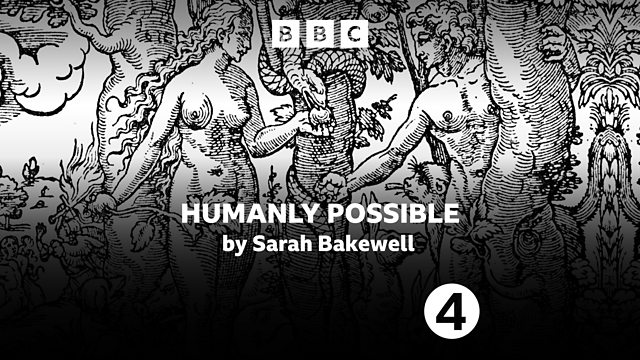
Episode 4 - Darwin, Huxley and scientific humanism.
Sarah Bakewell turns to Darwin's ground-breaking work on evolution and how TH Huxley came to inaugurate the scientific humanist. Emma Fielding is the reader.
Sarah Bakewell's new book on 700 years of freethinking, enquiry and hope turns to Darwin's ground-breaking work on evolution, and how T.H. Huxley engaged in scientific ways of thinking about humanity, giving rise to the scientific humanist. Emma Fielding reads.
Humanly Possible is the latest book from Sarah Bakewell, the award-winning author of 'How to Live' and 'At the Existentialist Cafe'. Here Bakewell delves into the lives of the thinkers who throughout history have set about understanding what it means to be human, and so created the school of thought that we know today as humanism.
In our series we encounter Petrarch and Boccaccio who look back to the ancients for models of good living based on friendship, wisdom and the power of words. Then we encounter Erasmus and find out about his views on education and civility. We'll also come across Wilhelm von Humboldt who re-designed Prussia's education system in the nineteenth century and ensured that it was founded on principles of mutual kindness and liberty. Moving on to the mid-nineteenth century we meet Darwin who with his ground breaking theories on evolution, and with T.H. Huxley gave rise to scientific humanism. In the final episode, the twentieth century's humanists are compelled to confront the horrors of the WWII and it's far reaching consequences.
The reader is Emma Fielding.
The abridger is Richard Hamilton
The producer is Elizabeth Allard
Last on
Broadcasts
- Thu 30 Mar 2023 09:45Βι¶ΉΤΌΕΔ Radio 4 FM
- Fri 31 Mar 2023 00:30Βι¶ΉΤΌΕΔ Radio 4
